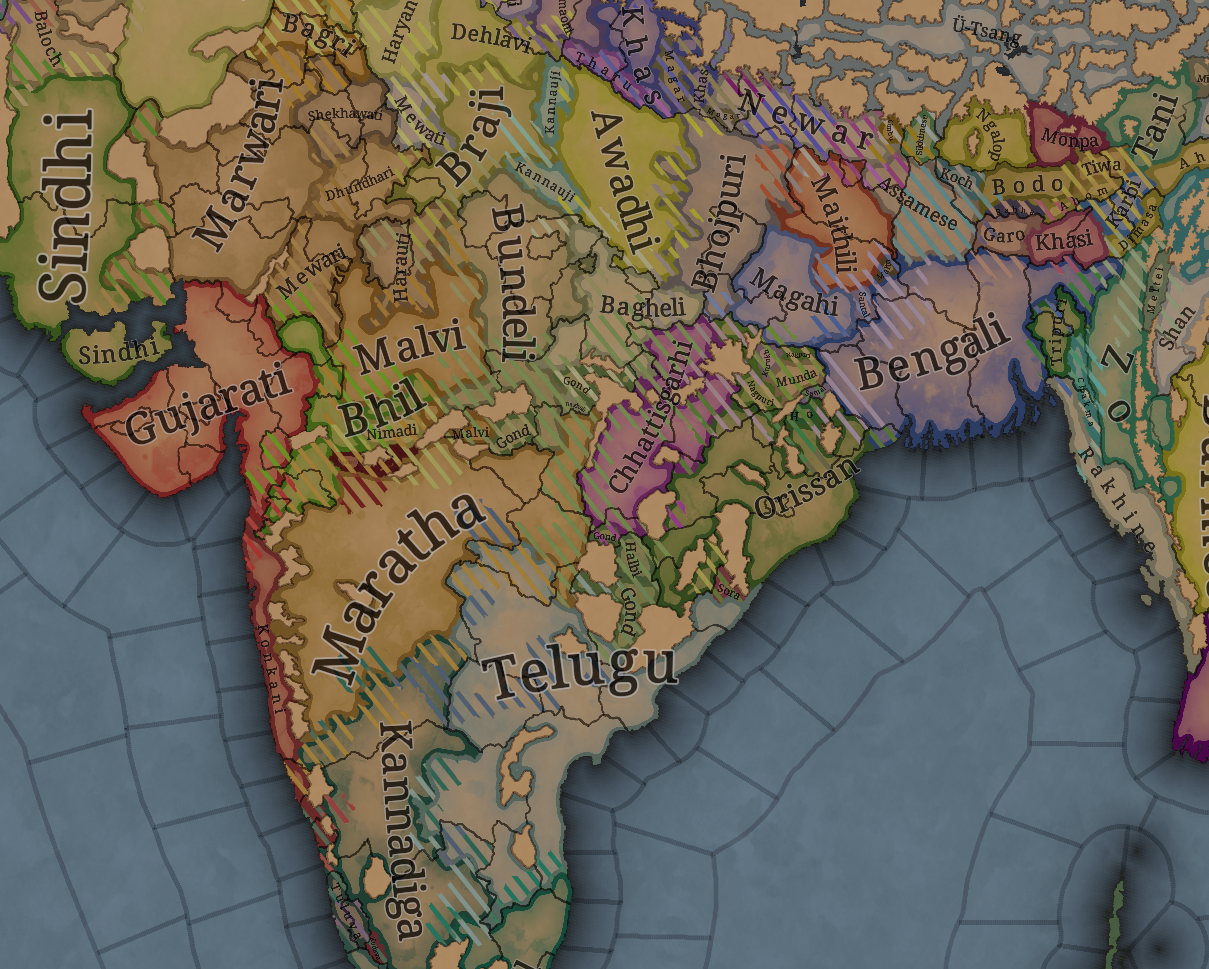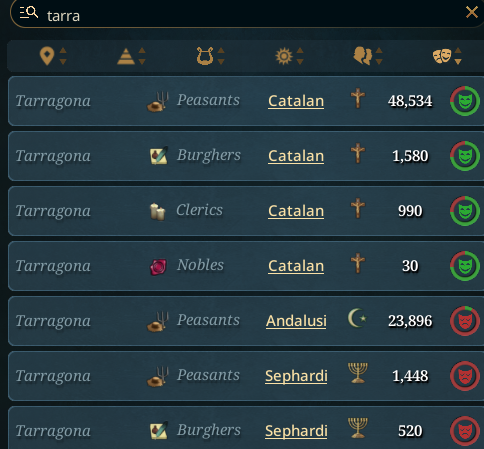Welcome to the third week of Tinto Talks, where we talk about our upcoming game, which has the codename “Project Caesar.” Today we are going to delve into something that some may view as controversial. If we go back to one of the pillars we mentioned in the first development diary, “Believable World,” it has 4 sub pillars, where two of them are important to bring forward to today.
Population
The simulation of the population will be what everything is based upon, economy, politics, and warfare.
Simulation, not Board Game.
Mechanics should feel like they fit together, so that you feel you play in a world, and not abstracted away to give the impression of being a board game.
So what does that mean for Project Caesar?

Every location that can be settled on the maps can have “pops,” or as we often refer to them in Project Caesar; People. Most of the locations have people already from the start of the game. Today we talk about how people are represented in our game, and hint at a few things they will impact in the game.
A single unit of people in a single location can be any size from one to a billion as long as they share the same three attributes, culture, religion, and social class. This unit of people we tend to refer to as a pop.

There are a few other statistics related to a Pop, where we first have their literacy, which impacts the technological advancement of the country they belong to, and it also impacts the Pop’s understanding of their position in life.
Another one is their current satisfaction, which if it becomes too low, will cause problems for someone. Satisfaction is currently affected by the country’s religious tolerance of their religion, their cultural view of the primary culture, the status of their culture, general instability in the country, <several things we can’t talk about just yet>, and of course specially scripted circumstances.
There are also indirect values and impacts from a Pop on the military, economical and political part of the game as well, which we will go into detail in future development diaries.
Populations can grow or decline over time, assimilate to other cultures, convert to religions, or even migrate.
Most importantly here though, while population is the foundation of the game, it is a system that is in the background, and you will only have indirect control over.
What about performance then?
One of the most important aspects of this has been to design this system and code it in a way that it scales nicely over time in the game, and also has no performance impact. Of course now that we talked about how detailed our map is with currently 27,518 unique locations on the map, and with many of them having pops, you may get worried.
14 years ago, we released a game called Victoria 2, that had 1/10th of the amount of locations, but we also had far more social classes (or pop-types) as we called them there. That game also had a deep political system where each pop cared about multiple issues, and much more that we don’t do here. All in a game that for all practical purposes was basically not multi-threaded in the gamelogic, and was still running fast enough at release.
Now we are building a game based on decades of experience, and so far the performance impact of having pops is not even noticeable.
Next week, we will talk about how governments work a bit, but here is a screenshot that some may like:

Population
The simulation of the population will be what everything is based upon, economy, politics, and warfare.
Simulation, not Board Game.
Mechanics should feel like they fit together, so that you feel you play in a world, and not abstracted away to give the impression of being a board game.
So what does that mean for Project Caesar?
Every location that can be settled on the maps can have “pops,” or as we often refer to them in Project Caesar; People. Most of the locations have people already from the start of the game. Today we talk about how people are represented in our game, and hint at a few things they will impact in the game.
A single unit of people in a single location can be any size from one to a billion as long as they share the same three attributes, culture, religion, and social class. This unit of people we tend to refer to as a pop.
- Culture, ie, if they are Catalan, Andalusi, Swedish, or something else.
- Religion, ie, Catholic, Lutheran, Sunni etc. Nothing new.
- Social Class. In Project Caesar we have 5 different social classes.
- Nobles - These are the people at the top of the pyramid.
- Clergy - These represent priests, monks, etc.
- Burghers - These come from the towns and cities of a country.
- Peasants - This is the bulk of the people.
- Slaves - Only present in countries where it is legal.
There are a few other statistics related to a Pop, where we first have their literacy, which impacts the technological advancement of the country they belong to, and it also impacts the Pop’s understanding of their position in life.
Another one is their current satisfaction, which if it becomes too low, will cause problems for someone. Satisfaction is currently affected by the country’s religious tolerance of their religion, their cultural view of the primary culture, the status of their culture, general instability in the country, <several things we can’t talk about just yet>, and of course specially scripted circumstances.
There are also indirect values and impacts from a Pop on the military, economical and political part of the game as well, which we will go into detail in future development diaries.
Populations can grow or decline over time, assimilate to other cultures, convert to religions, or even migrate.
Most importantly here though, while population is the foundation of the game, it is a system that is in the background, and you will only have indirect control over.
What about performance then?
One of the most important aspects of this has been to design this system and code it in a way that it scales nicely over time in the game, and also has no performance impact. Of course now that we talked about how detailed our map is with currently 27,518 unique locations on the map, and with many of them having pops, you may get worried.
14 years ago, we released a game called Victoria 2, that had 1/10th of the amount of locations, but we also had far more social classes (or pop-types) as we called them there. That game also had a deep political system where each pop cared about multiple issues, and much more that we don’t do here. All in a game that for all practical purposes was basically not multi-threaded in the gamelogic, and was still running fast enough at release.
Now we are building a game based on decades of experience, and so far the performance impact of having pops is not even noticeable.
Next week, we will talk about how governments work a bit, but here is a screenshot that some may like:



